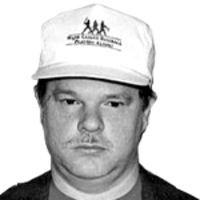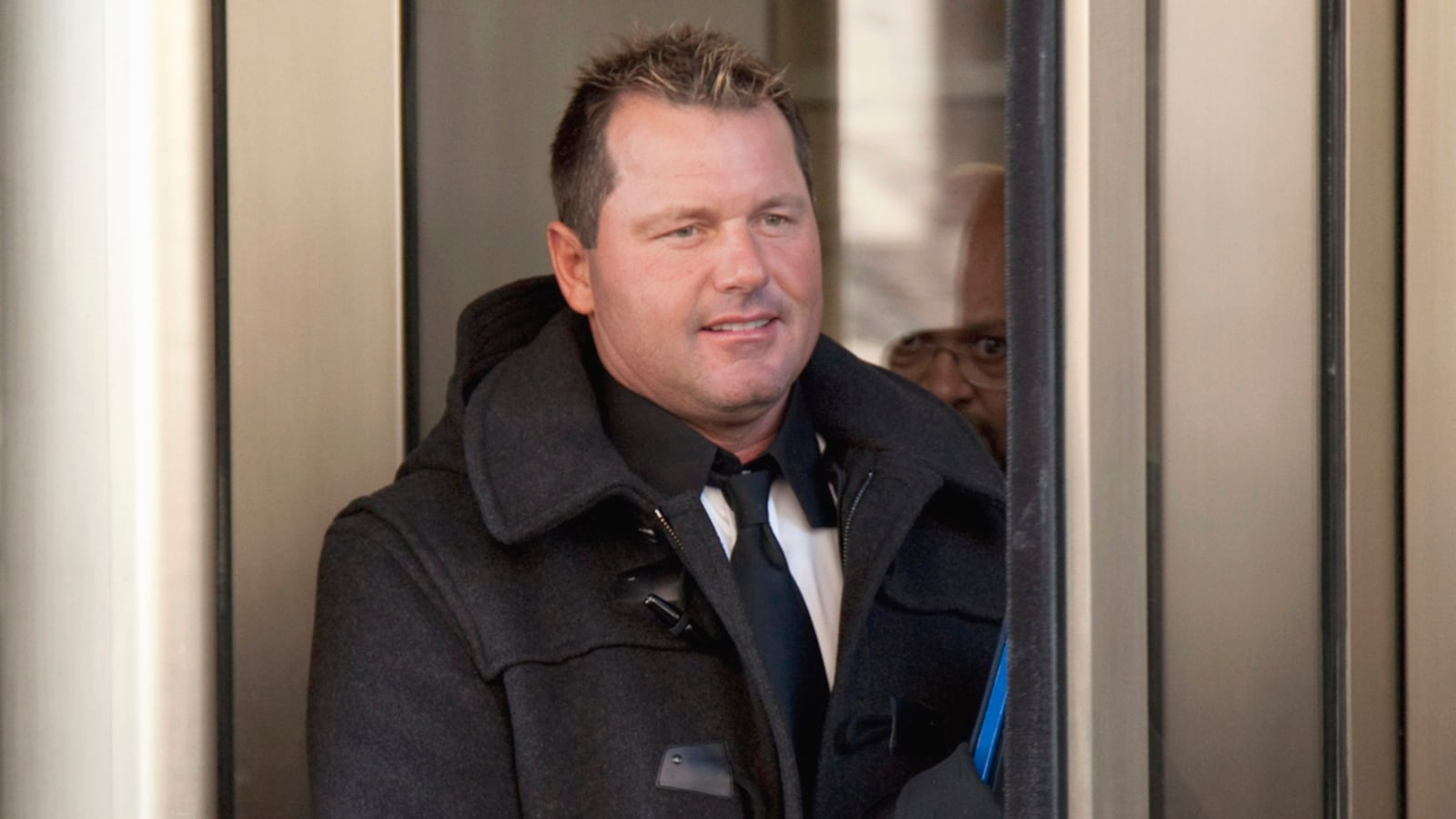Anthony Weiner is played out, the Casey Anthony trial is winding down, but just in time, here comes a summer replacement show: the U.S. Government versus Roger Clemens. The trial begins on Wednesday. Someone has to lose here. Clemens’ reputation as the greatest pitcher of his time–and what was once a certain Hall of Fame plaque–are on the line, and federal prosecutors are desperate to save face and justify their eight-year investigation which was said to be approaching $100 million last December, and now must be ready to surpass $120 million. All this just to nail a big league star?
The feds are at bat with an 0-2 count. The first strike came in December, when the federal government missed the deadline to ask the Supreme Court to review a damning decision by the 9th Circuit U.S. Court of Appeals in San Francisco.
The 9th Circuit had ruled that in April 2004, federal agents investigating BALCO (Bay Area Laboratory Co-Operative) illegally seized the samples and test results of an anonymous drug survey among major league ballplayers. You remember, those shocking revelations that Sammy Sosa, Alex Rodriguez, Manny Ramirez, and David Ortiz had used performance-enhancing drugs? That’s where the leaks of those players’ names to the New York Times and Sports Illustrated came from. How do we know? Because that’s the only place they could have come from. Other than the Players Association and the commissioner’s office, only the feds had the results of the tests, which were taken to determine the extent of drug use in baseball. (And it was in the union’s and MLB’s interest not to leak any information on the subject, not to mention they would have been in violation of national labor law if they had disclosed any results.)
Long story short: there’ll be no more leaks concerning baseball’s biggest drug survey since the samples were destroyed as soon as the ruling came down. And a tantalizing fact seems to have escaped everyone is that, logically, Clemens’ name must not be among the 103 now known to have tested positive for PEDs. How do we know? Well, who could possibly have resisted leaking his name if his test results had proven otherwise?

Strike 2 for the feds came in April when a San Francisco jury could not reach unanimous verdicts on three counts of perjury against baseball’s all-time home run king, Barry Bonds. Bonds was convicted on one count, obstruction of justice, but that’s not likely to hold up under appeal, which is currently under way. Even if it sticks, it’s doubtful that Bonds will get hit with anything worse than an ankle bracelet at home for a few months.
In baseball terms, Bonds walked.
So now we come to Roger Clemens, seven-time Cy Young winner as best pitcher (just as Barry Bonds was a seven-time Most Valuable Player) and the only player named in the 2007 Mitchell investigation on drug use in baseball) who dared to publicly criticize the report. (On what evidence was Clemens named in the report? Since it was a private investigation, the accused man actually had to go to court to see the evidence against him.)
That’s Clemens’ sin, and everyone knows it. That’s not to say that he didn’t take some kind of PED, but assuming he did, no one has so far been able to tell us why it matters–or why, at least, it matters to the federal government. There is no accusation that anything Clemens took (if he did) was illegal or even that the substance violated any rules of Major League Baseball. (The purpose of the 2003 testing was to gather information for the Basic Agreement between the players union and MLB; the substances in question weren’t banned until the 2004 season.)
But Major League Baseball must have its big dog-and-pony-show to prove it cares about drugs so that Congress won’t threaten its precious exemption from antitrust laws–which is what all these drug investigations were about in the first place–and the federal government, apparently having nothing more important to spend its time and money on, is now desperately seeking a win to justify what has been up to now an expensive and embarrassing exercise in futility.
What are their chances?
Well, don’t put any stock in the much-publicized notion that the prosecution is going to come up with a surprise witness who will have a drastic impact on the trial. Former Yankee Chuck Knoblauch will probably give his opinion that the Mitchell Report was accurate when it named him as a PED user, and that he believes personal trainer Brian McNamee when he says that Clemens got drug injections from him. We’ve known this since February 2008, when McNamee testified to the Committee.
Jose Canseco? “The godfather of steroids,” as he dubs himself, already told the grand jury that indicted Clemens for perjury that he had suspicions but no evidence of Clemens’ drug use.
There has been some much-publicized nonsense about whether Clemens attended a party at Canseco’s Miami home in 1998 where McNamee was also present. Canseco doesn’t remember Clemens being there; two other guests recall that he was. (Does anyone remember whether they served Alice B. Toklas brownies?) Who cares?
C.J. Nitkowski, a former pitcher, remembers a workout session where Yankees pitcher Andy Pettitte said that Clemens told him [Petitte] he had used human growth hormones. But Nitkowski told the New York Daily News years ago that he never saw Clemens use any banned substances. That’s hearsay on hearsay.
The syringes McNamee suddenly produced in 2009 that he said he “saved” after injecting Clemens? Well, the Washington Post reported that although DNA linked to Clemens was identified, there still has been no announcement whether the syringes contained any drug substances. (Clemens insists that the only shots McNamee gave him were Vitamin B12.) And even if they did, who’s going to give credence to so-called “evidence” that have been around for more than 10 years before being submitted to tests?
How about Clemens’ pal Andy Pettitte? Pettitte is expected to testify that Clemens acknowledged using human growth hormones sometime in 1999 ... or was it 2000? Clemens has already replied to Pettitte’s statement, saying that he must have been referring to the HGH shots his wife Debbie received. Those who want Clemens punished have been eagerly awaiting Pettitte’s testimony, but they seem to have forgotten that back in 2008, Pettitte said in a sworn affidavit to Congress that Clemens told him he had used HGH, but Pettitte was such a bad witness that the House Committee of Oversight and Reform did not call him to testify in the hearings.
Afterward, the committee’s chairman, Rep. Henry Waxman (D-Ca) and the committee’s ranking Republican, Rep. Tom Davis (R-Va) released a statement that “Mr. Pettitte’s testimony at the hearing is not needed.” ESPN reported that Pettite was a vague witness who gave inconsistent testimony. Davis would only say that “no ballplayer in their right mind wants to come up in front of a congressional committee ... it wasn’t like he could add anything.” Could Pettitte’s memory have gotten drastically better in three years? Not likely.
This leaves the same number of genuine witnesses against Clemens now as there were three years ago, when he protested against the Mitchell Report: one, his former trainer, Brian McNamee. If anyone really thinks that the trial will come down to anything other than the question of whether a jury believes Roger Clemens or Brian McNamee is telling the truth, he or she is delusional.
The sports press has been so hostile toward Clemens for his surliness and arrogance (toward them, at least) that they have been pretty much willing to give McNamee a hall pass. Clemens’ lawyers won’t be so tolerant, and they have plenty of ammunition to work with. The man is, after all, a former drug dealer who has changed his story about his clients several times over the years when it worked in his favor.
In September 2000, McNamee wrote a letter to New York Times denying that Clemens ever took PEDs; then, with his own skin on the line, he did a complete turnaround in the Mitchell report seven years later. And that makes up only part of the cloud that hangs over McNamee.
In 2001, McNamee was suspected of and questioned about an ugly incident in which a woman in a pool at a Florida hotel was drugged and raped. No charges were brought, but police reports stated clearly that investigators thought McNamee had lied to them. (He later claimed that he had lied in order to shield certain Yankee players from prosecution.) What a guy. Always ready to take one for the team.
It’s always foolish to try to guess what a jury is going to decide, but after following this insanity for three years, my guess is that by the time Clemens’ attorneys finish making a Swiss cheese out Brian McNamee’s credibility, federal prosecutors, Major League Baseball, and Roger Clemens himself, whether or not he is exonerated, will wish they had let it go back in 2007.






